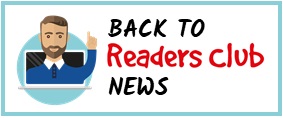Just under half of Quids in! readers don’t use a bank account but MPs and landlords are starting to insist we do to receive benefits and make essential payments like rent, but did anyone tell the banks?
A furious jobseeker was forced to stomp round five high street banks before finding one that would take his money.
Quids in! reader Del said: “I felt insulted. It meant so much to me as I was trying to improve my life. Then I had to deal with the fact that I didn’t exist, credit-wise.
“I was told the best thing I could do was to sign on so I could get proof of who I am. I did and then approached all the banks armed with ID, only to be turned down.”
Lloyds, Natwest, Barclays, Halifax, and HSBC all said ‘no’. Desperate, Del posed as a customer wanting to get into debt. Then a manager agreed to see him. “Finally I asked for an appointment on the pretence of wanting to secure a mortgage with Santander. I explained my situation and told him I deserved to be given a chance. It worked. They gave me a basic bank account.”
The government says banks should no longer turn anyone away for a Basic Bank Account. In 2015, it announced it had agreed a policy with all the major banks that no-one would be denied access. Del’s story, one of millions around the UK, is bad news for politicians as the new benefit system, Universal Credit, depends on having an account to pay in to.
PAYMENTS IN, PAYMENTS OUT
Under UC, claimants of Housing Benefit will also no longer have their rent paid for them direct to the landlord. It will be paid into their bank account and tenants will have to make sure it is paid on time, best done by setting up a direct debit straight out of a bank account. Some credit unions offer services like ‘jam jar accounts’, transferring rent and bills money out when benefits or wages are paid in, keeping cash safe and paid out on a set date.
The majority of working age Quids in! readers will be on UC by 2021, yet this year our research found almost half of the worst off (44%) do not use a regular bank account. Banks turned away more than one in 20 of them (6%) for ID reasons like Del.
NO FEES, NO OVERDRAFT
The Money Advice Service (MAS) guides people on finding a bank account. One option they recommend for people struggling to open a regular account is a fee-free Basic Bank Account. Michael Royce from MAS explained:
“If you have a poor credit history, you may not meet the requirements for a regular account. If so, it might be worth thinking about a fee-free basic bank account. Nine major banks and building societies offer these.”
“To open one, you shouldn’t have to pass a credit check but you must be able to prove who you are with an official form of ID, such as a driving licence or a letter from a government department. “Basic bank accounts have most of the features a regular account has, except for an overdraft.
“Fee-free means that if you don’t have enough money in your account to pay Direct Debits, you won’t be charged. But you will still need to find money to pay the people you owe and you may face a charge from them for missing the payment.”
For Del, having a bank account was about more than having somewhere to stash his hard-earned cash.
“Spending three months trying to open an account prompted me to learn about money, saving, investments – how to make money work for you. I now save regularly and never live beyond my means.”




